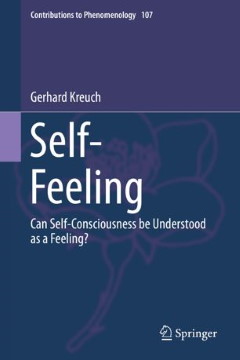Repository | Book | Chapter

(2019) Self-feeling, Dordrecht, Springer.
This chapter explores if and to what extent self-feeling can go wrong. Notably, self-feeling cannot err in the awareness of mere existence. Whenever we have a self-feeling, this already entails our awareness that we exist. However, self-feelings can be called inappropriate based on the way they shape the overall experience of our individual lives. An appropriate self-feeling must display a middle way between being open to alternatives (criterion 1) and being stable over time (criterion 3). Also, appropriate self-feelings must enable openness to other people as people (criterion 2). In addition to these criteria coming from Ratcliffe's theory of existential feelings, the philosophy of short-term, object-oriented emotions has additional criteria to offer for what they count as appropriate or inappropriate. First, the appropriateness of self-feelings can be evaluated with a look at its biological effects (criterion 4). Second, inappropriate self-feelings can harm our social fitness (criterion 5). Third, self-feelings need to display a certain amount of consistency with other mental states (criterion 6). Overall, six imperfect criteria are presented to evaluate the appropriateness of self-feelings. Importantly, there is no decisive, ultimate criterion to assess a particular self-feeling. All discussed criteria have their shortcomings. Nonetheless, in sum they can provide some guidance.
Publication details
DOI: 10.1007/978-3-030-30789-9_12
Full citation:
Kreuch, G. (2019). Appropriateness of self-feeling, in Self-feeling, Dordrecht, Springer, pp. 171-195.
This document is unfortunately not available for download at the moment.



